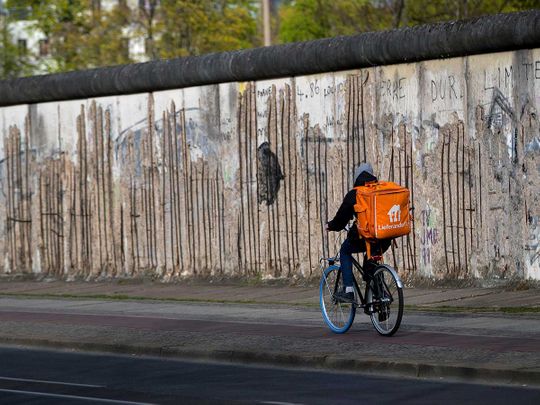
Berlin: The German economy shrank 2.2 per cent in the first quarter - the most in more than a decade and offering an early flavor of the damage from the coronavirus outbreak. Less than two weeks of official lockdown caused slumps in consumer spending and capital investment.
Government spending and construction provided some stabilization. A revision to the fourth quarter to show a 0.1 per cent contraction means Europe's largest economy is already in a recession. With restrictions to contain the pandemic only slowly being lifted, the economy is set to suffer much more in the three months through June.
The German government has already mobilized some 1.2 trillion euros ($1.3 trillion) to support German businesses, and is working on additional tools to kickstart the economy. More than 370,000 people lost their jobs in April alone, and a programme where the state compensates large parts of wages lost when businesses cut workers' hours has received applications for more than 10 million staff.
Finance Minister Olaf Scholz on Thursday promised a stimulus programme in early June that will focus on investing in a "modern and climate friendly future."
Still the best performer in eurozone
Even though the situation is dire, Germany isn't faring as poorly as much of the rest of the euro area. France, Italy and Spain have all registered first-quarter contractions of around 5 per cent.
That's partly because German containment measures were comparatively light and only took effect on March 23, later than in other countries. There's also the economy's reliance on manufacturing and trade, sectors that have been weathering the crisis slightly better than the services and tourism industries that are dominant in Europe's south.
"Assuming restrictions are eased broadly as the government plans, and light-touch social distancing measures follow, output will be down 5.5 per cent this year," said Jamie Rush, chief European economist at Bloomberg.
While the European Central Bank has offered some hope that the economy might have already seen the worst of the coronavirus slump, policymakers have cautioned that the speed and scope of the recovery will depend chiefly on confidence returning to consumers.








